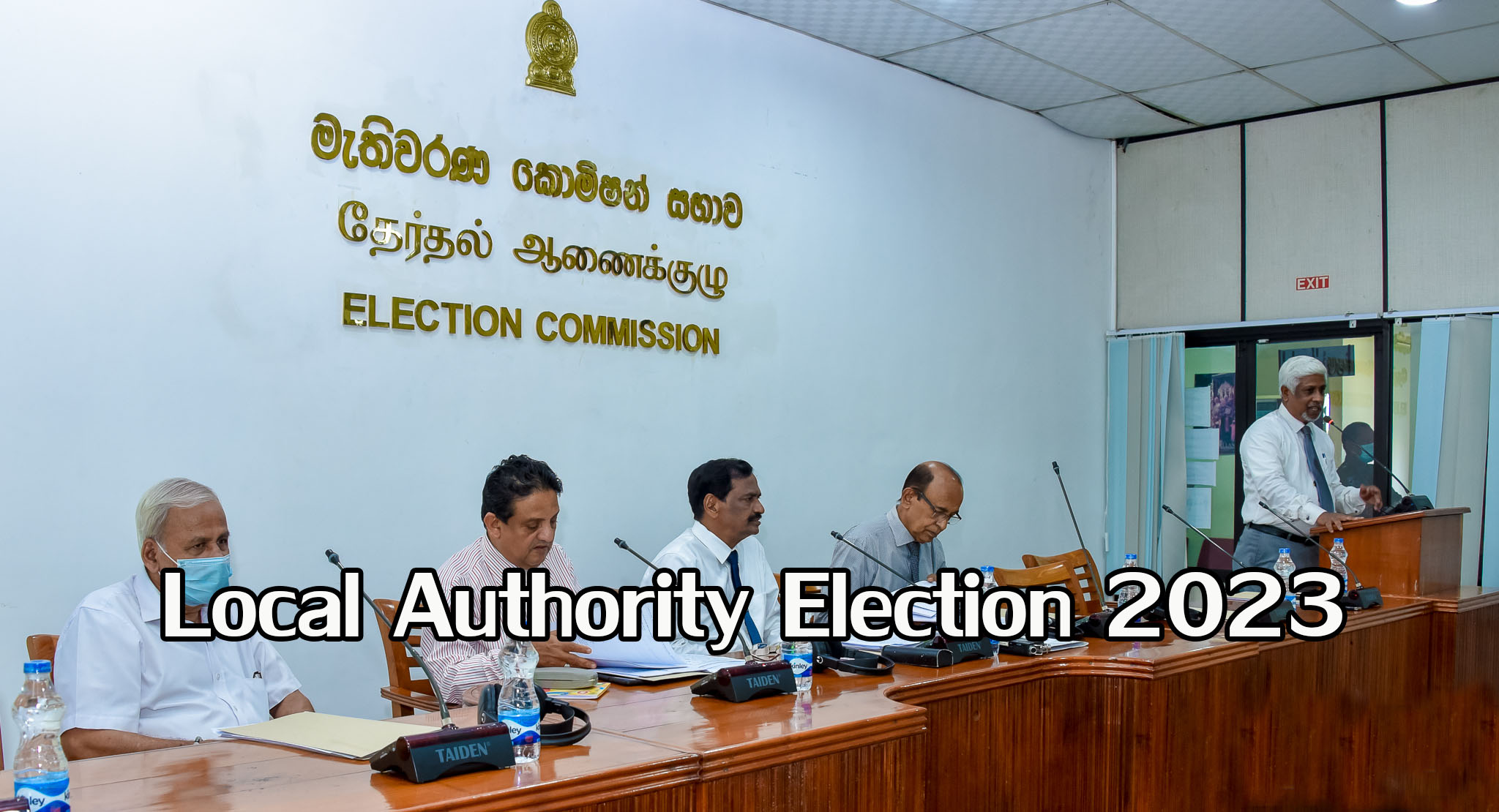A fundamental rights petition was filed in the Supreme Court yesterday challenging the failure and or refusal of several departments and institutions that represent the government to hold the local government elections.
The departments and institutions, the respondents in the case, are the four members of the Election Commission Nimal G. Punchihewa, S.B. Divaratne, M.M. Mohamed and K.P.P. Pathirana, the Commissioner General of the Election Commission Saman Sri Ratnayake, Government Printer G. K. D. Liyanage, the Inspector General of Police (IGP) C.D. Wickramaratne, the Secretary to the Treasury Mahinda Siriwardana, Minister of Public Security Tiran Alles and its secretary P.V. Gunatillake, the Prime Minister and Minister of Public Administration, Home Affairs, Provincial Councils and Local Government Dinesh Gunawardena and its Secretary H.K.D.W.M.N.B. Hapuhinna and the Attorney General.
The petitioners, the Centre for Policy Alternatives (CPA) and its Executive Director Dr Paikiasothy Saravanamuttu, constituents of the Centre for Monitoring Election Violence, claim that the conduct of the Government Printer and IGP is indicative of collusive action and or is a coordinated campaign to delay the holding of the local authority elections and that such actions are prejudicial to the fundamental rights of the petitioners and citizens of Sri Lanka.
They state that the President, in his capacity as the Minister of Finance, and the Secretary to the Treasury have not, until the very last minute on the 23rd of February 2023 indicated that there is a challenge to the allocation of funds to conduct the elections. The petitioners state that the actions of the respondents have taken place in the context of growing discontent among the public at the actions of the government.
The petitioners raise the point that the actions of the respondents are prejudicial to their fundamental rights and those of the citizens of Sri Lanka. They emphasise that the exercise of the franchise as required in terms of the law is essential for a country to be a democracy, and the conduct of elections must be treated as essential, for Sri Lanka to be and remain a democratic republic.
The petition is supported by Articles 10, 12(1) and 14(1)(a) of the Constitution.
There are 339 local authorities in Sri Lanka and their members have to be elected every four years. The last local authorities’ elections were held across the country on 10th February 2018 except in Elpitiya and members were declared elected on 9th March. The elections for the Elpitiya local authority were held on the 11th of October 2019 and its term is to continue for four years from the date of commencing office. Although the terms of the other local authorities expired in 2022, they were extended for one more year. The next election for these authorities has to be held by 19th March this year and there is no further option available in law for an extension of their term. Elections to local authorities are conducted under the provisions of the Local Authorities Elections Ordnance.
According to the petition, on the 4th of January this year the Election Commission announced that nominations for local authorities’ elections (excluding the Elpitiya local authority) will be accepted between 18th and 21st January. Following this announcement, the acceptance of applications for postal voting began on 5th January and ended on 23rd January. At the end of the period the Election Commission announced there were 676,873 valid applications for postal voting across the island.
By the 30th of January, the returning officers for the districts had published separate gazette notices announcing the date and times of the poll.
On 13th February however, the Election Commission announced that it had been informed by the Government Printer that it will not be able to print the ballot papers for postal voting if the Treasury does not provide funds for it.
The petitioners state that although the Government Printer had assured the Election Commission that ballot papers for postal voting will be made available by 14th February on the day before, she had requested an advance payment from the Election Commission which it was not able to provide.
The petitioners highlight that where the payment is to be made by the State, such advance payment is not mandatorily insisted upon. They claim the Government Printer attempted to justify the failure to print the postal voting ballot papers on the basis of a National Budget Circular signed by the Treasury Secretary which said that the Treasury was to release funds only for purposes deemed essential by the circular.
The Government Printer also said that ballot papers cannot be printed because of a lack of police security. The petitioners however point out that the police were deployed in large numbers for two events in February. There were 2150 police officers at the Janaraja Perahera and many were seen at the 75th Independence Day celebrations.
Under the Appropriation Act No. 43 of 2022, Parliament has authorised Rs.10,903,660,000.00 for the Election Commission as recurrent expenditure for this year.





